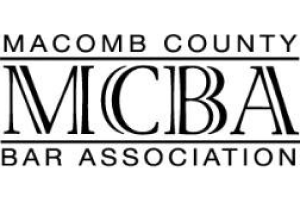The Divorce Process Options
The process that the parties utilize in a divorce depends largely on the goals of the parties. Parties that feel they must be adversarial will seek a different process than those that seek a process that is mutually effective. To determine which process matches your goals the following explanations will assist you.
Collaborative Divorce
The collaborative process is relatively new in terms of the United States legal system. It has been implemented world-wide and began in the United States in the 1990s. It is a multi-disciplinary approach, designed to minimize conflict and find ways that a divorcing couple can resolve all important issues in the divorce process. It also focuses on assisting a couple with minor children to develop a long-term sustainable agreement concerning the minor children and the parties.
The collaborative process is a team approach that creates a solid foundation for a future parenting partnership between the parents and also between the parents and children. Each party has an attorney that represents them and they sign a participation agreement to work together through the process. This is very important as the family restructures into a two household family. Other professionals, such as a family coach, a child specialist, and a financial neutral can be added to the team as needed to facilitate settlement of the family’s issues.
From the beginning of the process and until a final agreement is reached the parties do not enter into the legal system, keeping everything confidential. This also allows the parties the time needed to work out a settlement, as they do not have to adhere to a strict court schedule and deadlines. Once the final settlement agreement has been made the paperwork is prepared and filed with the court to complete the divorce.
Mediation and Arbitration
Mediation is a method to settle the issues and disputes in a divorce by using a neutral third party. In the divorce process the neutral third party is typically an attorney who practices family law, knows the laws, and knows how a family law Judge would most likely rule on the disputes. A mediator can be used at any stage of the divorce process and can begin even before the case is filed or attorneys are hired. If a settlement is reached during mediation the mediator will put the agreement in writing and this will be incorporated into the final Judgment of Divorce. If the divorce has already been filed and the parties cannot come to an agreement on issues the court will order the parties to go to mediation. However, a mediator cannot represent either party or draft any documents that finalize the divorce.
Arbitration also uses a neutral third party, but the Arbitrator acts as a private Judge in place of the Judge that was assigned to the case by the court. Typically, both parties are represented by an attorney and agree to the appointment of an Arbitrator to settle the case. Arbitration is used instead of having a trial in court and can be less expensive and faster that having a trial. The Arbitrator will hear the arguments of both parties and then issue a final opinion. This opinion is incorporated into the final Judgment of Divorce. The Arbitrator’s opinion is binding and cannot be appealed unless the arbitrator breaks a very limited set of rules.
Traditional Adversarial Litigation
The traditional process begins with one party filing all the required documents with the court to begin the divorce and then serving the other party with the paperwork. The other party then must respond within the timeframe set by the court rules. Both parties typically hire attorneys to represent them. The attorneys begin the discovery process which can be very time consuming and require voluminous records and documents. The court will set deadline dates and trial dates, which must be adhered to. During the process, the parties through their attorneys will negotiate and attempt to settle the case. If there are disputes that need to be settled during the process the attorneys will file motions and hearings with the court will be scheduled. All things that are filed with the court are public record and the hearings are public record as well. This can be a lengthy and pressure filled process. The Judge will require the parties to attend mediation prior to going to trial. Less than 2% of divorce cases go to trial, as most people do not want a stranger deciding their property rights, their children’s future, and their future. The traditional adversarial litigation process can be very financially and emotionally draining.













